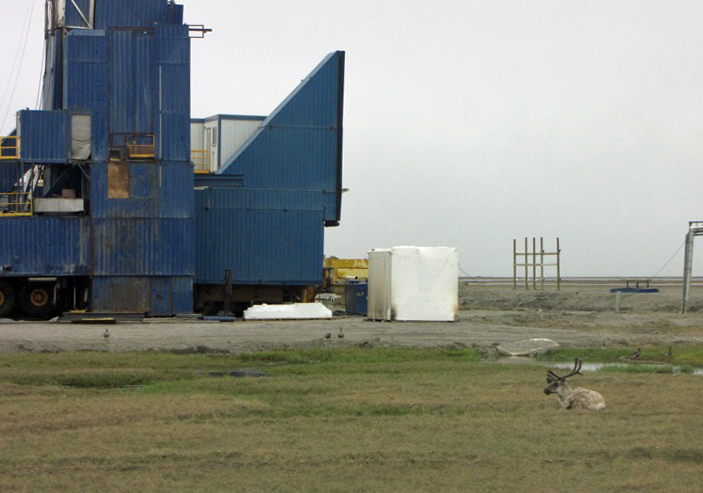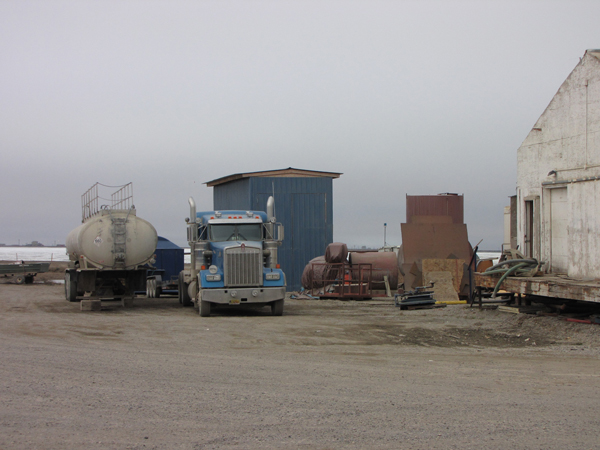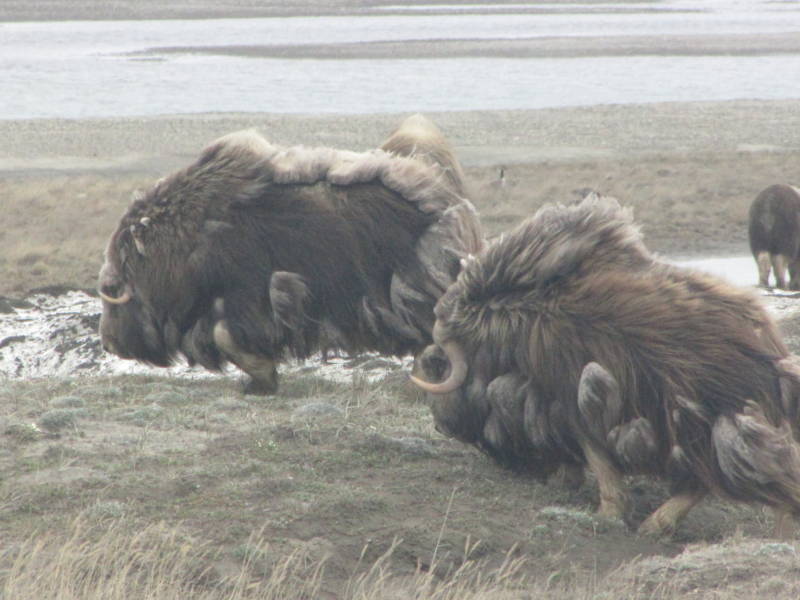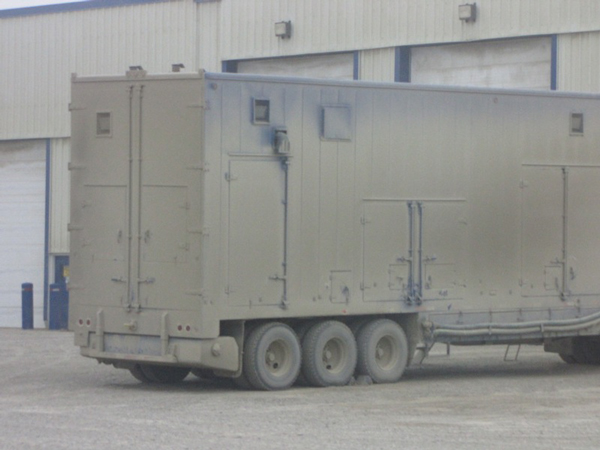
The only way to drive to the Arctic Ocean from Toolik Station, or really, any place else in Alaska, is to take the Dalton Highway north until it ends in Prudhoe Bay. I thought the Haul Road was bumpy from Fairbanks to Toolik, but taking it the additional 140 miles from Toolik Field Station to Prudhoe Bay took things to a whole new level. It’s the kind of drive where you have to be careful not to touch your face, because the van is bumping along so wildly, you’ll likely poke your eyeball out. Which is particularly challenging when you also need to be vigilantly swatting mosquitoes the size of hummingbirds.
Very few people actually live in Prudhoe Bay, but at any given moment it is home to thousands of workers working 12 hours shifts, two weeks on, two weeks off, at the country’s largest oil field. It’s basically a gigantic work site, operated by BP. The airport and general store are down the road a bit in the settlement of Deadhorse. And there’s no other way to say it — Prudhoe Bay comes across as one depressing place.

We made the four-hour journey there last Tuesday, arriving just after 4pm. The temperature was in the 30’s, but the wind made it feel much colder. Gray clouds hung low and close to the ground. Massive oil rigs and processing facilities dominate the landscape in Prudhoe, along with modular unit-type buildings used as living quarters, and parking lots full of trucks. Everything was covered in gray mud. The sky was gray, the icy water was gray, the mud-coated buildings were gray, and even the ocean sand dunes and the marshy landscape around the facilities were a muted, grayish brown. Someone in our group described the scene as “post-apocalyptic,” and another mentioned the movie Blade Runner. Looking around at the trash-strewn landscape, the huge trucks caked with dirt, and, in one spot, the massive pipes belching flames, I was reminded of Cormac McCarthy’s novel, The Road.

To actually access the Arctic Ocean, which was our group’s true mission, we had to pass through a BP checkpoint. And to be able to do that, we had to be on a company-sanctioned tour, which consisted mainly of driving around looking at buildings and equipment, with a nice but not-very-chatty security guard. But a true highlight was just a few minutes into the bus ride when we encountered a group of wild muskoxen. (Another highlight was the BP promotional video we were forced to watch before we boarded the bus.) Then we headed to a rocky beach, where three brave souls took a full-body plunge into the 29 degree waters of the Arctic Ocean. The chunks of ice floating on the surface were enough to deter me from even wading in at all.
In addition to all the headlines about the Gulf disaster, BP has also been drawing attention over developments here in Prudhoe Bay. According to a recent article in The New York Times, the company plans to start drilling this fall at a new site about three miles off the shore at Prudhoe Bay, despite Obama’s moratorium on new offshore drilling projects. By building an artificial island in the shallow waters, BP has acquired an “onshore” designation for the controversial project, the article explains. This graphic from the Times illustrates how the proposed drilling would work.
Our tour guide didn’t discuss the Liberty project, and when we called ahead about our visit, a BP spokesperson said that no one would be available to talk with us. So, after our tour, we warmed up with some hot chocolate, and then we took our cold selves back to Toolik Field Station with lots of new questions and not many answers.

One thought on “Postcard from Prudhoe Bay”
Comments are closed.

Does anyone have a list of the places around the world that BP is polluting — How about a new name – Big Polluter. How is it they are allowed to “steal” our US resources for the “drug” of polluting black oil and not be in jail when the street peddler “steal” a few dollars for the “drug” of white snow and gets long-term punishment. What happens when sloppy, practiacally illegal procedures have a huge accident in freezing Artic? Who is even going to try to save that area. They should be banned forever for doing business wrecking the planet.